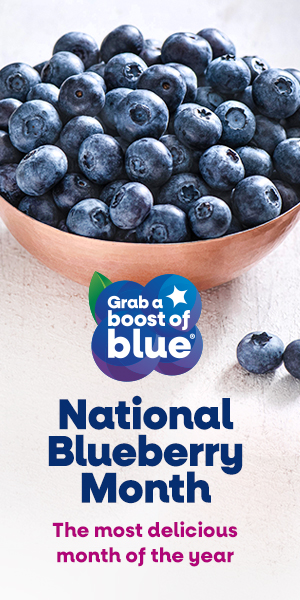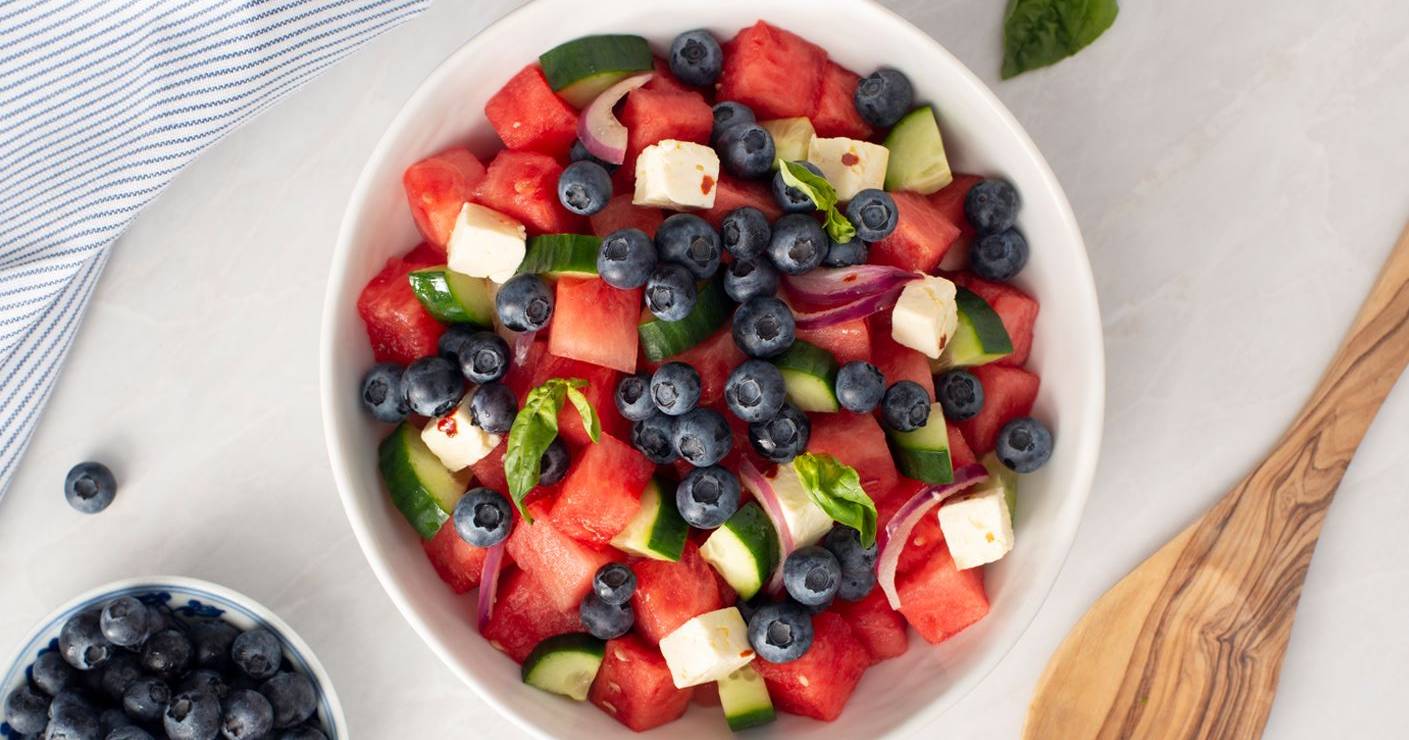Celebrate National Blueberry Month with Pennington Biomedical Dietitians
July 3, 2024 · Baton Rouge, LA
Summer Belongs to Blueberries
Since 1974, National Blueberry Month has been observed in July in honor of one of nature’s top superfoods. But what exactly makes blueberries so beneficial?
The health benefits of blueberries are believed to be due to the diverse range of phytochemicals they contain, that act as antioxidants, anticancer agents, anti-neurodegenerative agents and anti-inflammatory agents. Because of these properties, many studies have been conducted to evaluate the health benefits of blueberries in chronic disease prevention.

Studies by researchers at Pennington Biomedical have found various health benefits associated with blueberries, including showing that blueberries have properties that help improve factors related to pre-diabetes and decreased inflammation in men and women living with obesity. Another study showed that bioactives in blueberries improve insulin sensitivity in people with obesity and insulin-resistance and that blueberries are also shown to improve endothelial function, which controls blood flow.
To learn about these and other health benefits, along with ways to incorporate blueberries into your family's diets, we turned to Cathy Carmichael and Kate Blumberg in Pennington Biomedical’s Dietary Assessment and Nutrition Counseling unit for more information and tips.
Some have called blueberries nature’s perfect fruit and a superfood. What is it about the blueberry that is so good for you?
Blumberg: Blueberries are truly a “super” food that should be part of a healthy diet. Blueberries are delicious. Blueberries are nutritious, and blueberries are easy to eat.
Carmichael: Blueberries are naturally sweet, high in fiber and a good source of Vitamin C. Their rich colors mean they are high in antioxidants and disease-fighting nutrients.
What are the health benefits of blueberries?
Blumberg: They are a great source of Vitamin C, Vitamin K, manganese, and fiber. The fiber and the water content of the blueberries make them a great lower calorie but satisfying food.
Blueberries are also a rich source of Phytochemicals, specifically anthocyanins, flavonoids, and resveratrol. Phytochemicals are compounds that are produced by plants ("phyto" means "plant") that have been shown to have a variety of health benefits. The phytochemicals are what give the blueberry its color, smell and taste. These phytochemicals may help protect the body from type 2 diabetes, cancer and cardiovascular disease, lower blood pressure, promote eye and gut health and reduce inflammation. Research also suggests regularly eating blueberries may improve memory and delay age-related cognitive decline.
Does it matter if you eat them fresh, frozen or cooked in something? Is one way better than another?
Carmichael: Frozen blueberries are equal in nutritional quality to fresh berries. You might find dried blueberries in trail mix or in breakfast cereal. It is important to look for no-sugar added dried blueberries and pay careful attention to portions when eating dried blueberries. They have more calories than fresh or frozen berries. A cup of fresh blueberries is about 80 calories, while a serving size of dried blueberries is ¼ cup and equal to about 125 calories.
Blumberg: Both fresh and frozen blueberries are equally nourishing. Frozen blueberries are picked at the peak of freshness and individually frozen to preserve their taste, durability and nutritional composition. Blueberries are truly a nutritious treat that you can enjoy every day!
How would you recommend adding blueberries to your diet? And how often would you recommend eating them?
Carmichael: Keeping a bag of frozen blueberries in your freezer is the most practical way to add blueberries to your diet. My daughter loves to make smoothies. She uses the blender to combine ice, yogurt, frozen blueberries and peanut butter or avocadoes to make a hearty snack. If fresh blueberries are available, enjoying them on their own is a great snack.
You can add blueberries to a summer salad with watermelon and pineapple for a colorful treat. Tossing blueberries into your green salad with a fruity vinegarette dressing is another fun thing to do.
Blueberries are terrific when it comes to breakfast. They are great with oatmeal or cold cereal and work well in waffles, pancakes and muffins.
Blumberg: As a mom of three boys, blueberries are a “superfood” in our household! Not only are they full of vitamins, minerals, antioxidants and fiber, but my kids think they are wonderful, and they are a quick easy source of nutrition for this busy mom. My kids feel they are eating a treat, and I feel good knowing they are getting the nourishment their bodies need to learn, grow and be healthy.
Another benefit to blueberries is just how quick and easy they can be added to meals throughout the day: throw some blueberries in your cereal, oatmeal or yogurt for breakfast or a snack; add them to whole grain muffins, waffles or pancakes; pop a handful in your mouth as a healthy snack; add them to a salad with nuts; use them on a peanut butter/nut butter sandwich instead of jelly; or make a blueberry smoothie.
Here are some other blueberry recipe ideas from the Pennington Biomedical Metabolic Kitchen:
- Patriotic Popsicles
- Blueberry and Peach Crisp
- Sweet Potato Waffles with Blueberries
- Fresh Fruit Kabobs
- Blueberry Smoothie
To learn more about National Blueberry Month, visit https://blueberry.org/about-blueberries/national-blueberry-month/.
For more information contact:
Joe Coussan, Media Relations Manager, joe.coussan@pbrc.edu, 225-763-3049 or Ernie Ballard, Senior Director of Communications & Marketing, ernie.ballard@pbrc.edu, 225-263-2677.
About the Pennington Biomedical Research Center
The Pennington Biomedical Research Center is at the forefront of medical discovery as it relates to understanding the triggers of obesity, diabetes, cardiovascular disease, cancer and dementia. Pennington Biomedical has the vision to lead the world in promoting nutrition and metabolic health and eliminating metabolic disease through scientific discoveries that create solutions from cells to society. The Center conducts basic, clinical and population research, and is a campus in the LSU System.
The research enterprise at Pennington Biomedical includes over 600 employees within a network of 44 clinics and research laboratories, and 16 highly specialized core service facilities. Its scientists and physician/scientists are supported by research trainees, lab technicians, nurses, dietitians and other support personnel. Pennington Biomedical is a globally recognized state-of-the-art research institution in Baton Rouge, Louisiana. For more information, see www.pbrc.edu.
Pennington Biomedical Research Center
6400 Perkins Road
Baton Rouge, LA 70808



